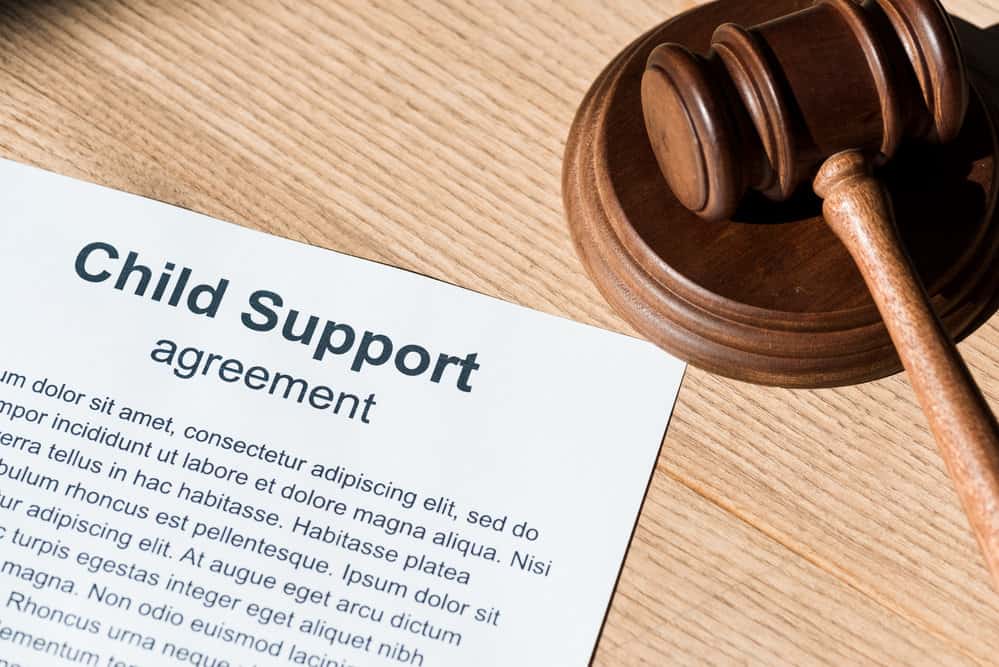A child support hearing is a legal proceeding to verify how much financial support the non-custodial parent must supply the custodial parent with. This money guarantees the child’s well-being, and meetings tend to be held when there are discrepancies between the parents regarding how much they should pay. The purpose of the meeting is to come up with a fair figure, and both parents are happy with it.
Common Questions in Child Support Hearings
A child support hearing tends to occur when a parent wants to change an existing order or is requesting a child support order in the first place. After you have checked in, there will be a brief interview process, and questions will be asked. These will be related to a variety of aspects regarding the well-being of the child and the responsibilities of the parents. Some of the most commonly asked questions include:
- What is the financial status of each parent?
2. What are the financial needs of the child, including how they live, their healthcare, and their education
3. What is the total income of each parent, taking into account wages, bonuses, commission and other income
4. Does the child have any special circumstances that require additional financial support?
5. Are there any other children in the household to be aware of?
6. Are there any extenuating circumstances that might affect your ability to pay child support?
 Key Issues Discussed in Child Support Hearings
Key Issues Discussed in Child Support Hearings
During a child support meeting, several key topics are discussed to work out how much child support the non-custodial parent should be paying. This is so the right amount can be determined to ensure the child doesn’t have to sacrifice things in their life yet that the parent isn’t left financially out of pocket. Some of the main topics that will be discussed include:
- The basic needs of the child
- Both parents income
- If the child has any healthcare needs and the costs around this
- If there are any educational expenses to take into account
- The time schedules of both parents
- If the existing child support needs to be changed how can this be done
Preparation Tips for Child Support Hearings
When heading to your child support hearing, you must be as prepared as possible to ensure you present your point effectively. By being ready, knowing what to say, and having any evidence to back up your points, you put yourself in the best possible position. Some preparation tips you can do beforehand include:
- Gathering any relevant financial documents that show your income and expenses
- Understanding the child support guidelines for where you live
- Seeking legal advice from a family law attorney
- Having a budget in mind, including reasons for this
- Preparing for counter-arguments that might come your way
- Ask a witness to come along with you
- Knowing the procedures and protocols of the court
Understanding the Role of Evidence in Child Support Hearings
When it comes to putting your point across in a child support hearing, you must have the correct evidence to back it up. Without this, the validity of what you’re saying might be questioned, and your financial circumstances won’t be able to be validated. There are many types of evidence you can bring. This includes income verification in the form of your payslip or bank statements, expense documentation that shows the financial needs of your child, such as their education or extracurricular activities, and custody arrangement proof that shows how often you have the child and the visitation rights.
You can also gather witness testimonials from key figures in your child’s life, such as their teachers or healthcare providers, who can testify of any additional child needs. Bring along any evidence of financial obligations and debts that can impact your ability to pay child support or that might demonstrate your financial situation, as well as any communication records with the other parent and any previous court orders and agreements that might provide history and context to the case.
Effective Communication Strategies in Child Support Hearings
A child support hearing can be an emotional time, but it’s important not to let your feelings cloud the way you act or speak. You want to get your point across clearly and effectively and don’t want your emotions to prevent this from happening. To communicate effectively, you need to:
Be concise with your point – It’s easy to ramble on when you’re nervous, but this can stop your point from being clear. Try to be as concise as you can and ensure your message is appropriately conveyed to the other person.
Remain calm – While it can be hard not to get upset or angry, you must try to keep your emotions in check. Keeping composed and ensuring your emotions are in check will help you to get your point across and for you to be listened to more effectively.
Listen attentively – Ensure you listen to what the other party says and take their side. Taking their side into account can help you to construct better answers and responses when the time comes.
Stay focused on your points – Remember why you are there to put your child’s best interests forward. Don’t lose sight of this and center your communication on this, highlighting why you are arguing your point and what it’s for.
Express your willingness to communicate – Working together with the other parent can make it a lot easier to get the desired result. This positive environment can help make the hearing much more pleasant and both parties more likely to be listened to.
Use simple language – Don’t use complex jargon and instead display your points simply with easy-to-understand sentences. This can get the process moving faster and avoid causing any confusion.
 Exploring Legal Rights and Obligations in Child Support Hearings
Exploring Legal Rights and Obligations in Child Support Hearings
When it comes to your child support hearing, it’s essential to keep in mind that both parents have legal obligations and rights. Before the hearing, it’s a good idea to familiarize yourself with these to get the most from the meeting and know exactly where you stand. Some of the essential legal rights and obligations that will be explored include:
- The child’s right to support
- The non-custodial parent’s obligation to provide financial support
- The custodial parent’s legal obligation to use child support payments for the benefit of the child as outlined in the court
- The obligation to provide financial information that is truthful and accurate
- The right to seek modification of the child support order if circumstances change significantly
- The right to seek legal representation to protect your rights
- The obligation to comply with the orders put forward by the court
- The right to appeal the court’s decisions
- The right to present evidence and arguments that support your case
Navigating Custody and Visitation in Child Support Hearings
When it comes to determining the child support that’s required, custody and visitation are something that will be explored in detail. This is because the two are closely linked when figuring out what is best for the child in question. Some of the points to think about include:
Familiarize yourself with the different types of legal custody, including joint physical custody, joint legal custody, and sole custody. Ensure you know what each one means and the implications of each so you can make informed decisions and appropriate points in the hearing.
Ensuring the visitation rights with the non-custodial parent are addressed. The amount of time the non-custodial parent spends with the child can impact child support. Have evidence that showcases the relationship between the child and the parent. This should emphasize the importance of maintaining a strong bond with both parents and how it can be done.
Putting together a detailed parenting plan that outlines the visitation agreements, roles of both parents and who will have the final say in any important decision in your child’s life.
 Potential Outcomes of Child Support Hearings
Potential Outcomes of Child Support Hearings
Child support hearings are there to conclude that all are happy with it. Depending on the circumstances, you can have a few different outcomes. It might be that the court establishes a formal child support order or an existing court order might be modified. There could be clarification of custody and visitation agreements, the court might enforce child support obligations, and there might be penalties put forward for any noncompliance that has happened.
The court might assign arrears and sort a repayment plan for missed child support payments, and if there has been wilful noncompliance with the court orders, they might impose legal consequences. If the issues have all been appropriately addressed and resolved, the case might be dismissed or closed. It’s essential to understand all the potential outcomes to navigate the process as effectively as possible.

 Key Issues Discussed in Child Support Hearings
Key Issues Discussed in Child Support Hearings Exploring Legal Rights and Obligations in Child Support Hearings
Exploring Legal Rights and Obligations in Child Support Hearings Potential Outcomes of Child Support Hearings
Potential Outcomes of Child Support Hearings
